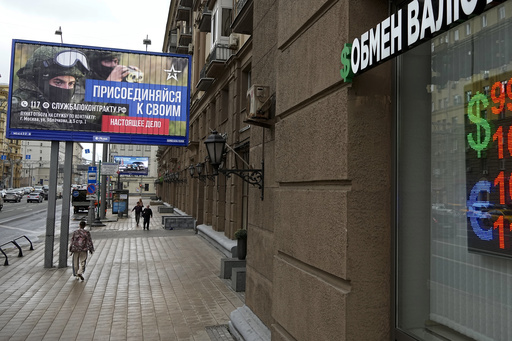Russia’s central bank has raised its key interest rate by a significant one percentage point to 19% in efforts to curb high inflation brought on by increased government spending, especially on the military. The central bank mentioned that the growth in domestic demand surpasses the capabilities to expand the supply of goods and services adequately. Further rate increases may be on the horizon to bring inflation down from the current 9.1% to the bank’s target of 4% by 2025.
Despite facing sanctions due to its military actions in Ukraine and other countries’ disapproval, Russia’s economy maintains robust growth. The Gross Domestic Product continues to benefit from substantial government spending, including military expenditures, supported by revenue from oil exports. However, such government outlays have contributed to inflation, a challenge the central bank seeks to address with higher interest rates to discourage excessive borrowing and spending, ultimately alleviating price pressures. Yet, experts suggest that prolonged tight credit conditions may eventually hinder economic growth.
Despite the inflationary pressures, rising wages and a thriving job market have helped sustain consumer activity at high levels, according to the central bank. The current policy rate is the highest since February 2022 when rates were raised to an unprecedented 20% to stabilize the ruble following severe sanctions in response to military actions in Ukraine.
In the second quarter, Russia’s economy saw a growth of 4.4% with low unemployment at 2.4%. Industries, including factories, are operating at near-maximum capacity to manufacture goods for military use and to replace imported items affected by sanctions or foreign companies exiting the Russian market. Government revenues are bolstered by economic growth and oil and gas exports, despite Western sanctions and a $60 price cap on Russian oil enforced by prohibiting Western insurers and shippers from dealing with oil priced above the cap.
Through strategic measures like utilizing its tanker fleet and operating without Western insurance, Russia managed to evade the price cap and earn around $17 billion in oil revenues in July.


